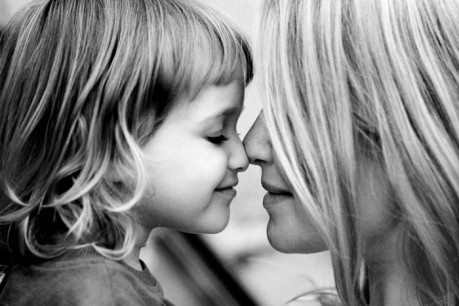The human brain takes time to
develop. By birth, the brain has developed the main functions
necessary to life – breathing, keeping your heartbeat steady,
sucking, sleeping. The rest of the brain takes years to develop.

Knowing more about your child’s developing brain is a good way to understand how children think, feel and behave. Young children have limited ability to think and be reasoned with – they can’t link their feelings, thoughts and behaviour in their early years. The sections of the brain responsible for these areas are not ‘switched on’ in early childhood.
Understanding how children’s brains develop gives us insight into the questions parents often ask….WHY?
Why do they do that?
Why don’t they listen?
Why do I have to say the same thing over and over?
Our brains are continually changing in response to our lived experience. Children’s brains are more impressionable or ‘plastic’ in the early years. However, the brain remains plastic throughout life, shaping and reshaping, as we continue to adapt to new experiences and learning.
The brain is made up of many parts or regions that all do different things. Neurons are the ‘wires’ that connect the different areas of the brain. The number of connections and how they are organised influences how we make sense of our experiences, understand relationships, remember things and learn.
Different parts of the brain develop at different ages and in a set order. Thus different kids of experiences are important at different ages to strengthen each part of the brain.

Knowing more about your child’s developing brain is a good way to understand how children think, feel and behave. Young children have limited ability to think and be reasoned with – they can’t link their feelings, thoughts and behaviour in their early years. The sections of the brain responsible for these areas are not ‘switched on’ in early childhood.
Understanding how children’s brains develop gives us insight into the questions parents often ask….WHY?
Why do they do that?
Why don’t they listen?
Why do I have to say the same thing over and over?
The developing brain
Genes and environment interact at every step of brain development but play very different roles. Genes are largely responsible for the ‘basic wiring plan’ of the brain. Experience is responsible for fine tuning and strengthening connections within the brain.
Our brains are continually changing in response to our lived experience. Children’s brains are more impressionable or ‘plastic’ in the early years. However, the brain remains plastic throughout life, shaping and reshaping, as we continue to adapt to new experiences and learning.
The brain is made up of many parts or regions that all do different things. Neurons are the ‘wires’ that connect the different areas of the brain. The number of connections and how they are organised influences how we make sense of our experiences, understand relationships, remember things and learn.
Different parts of the brain develop at different ages and in a set order. Thus different kids of experiences are important at different ages to strengthen each part of the brain.
You are the active sculptor of your child’s growing brain
Young brains are very sensitive to experience. Early experiences and environments have a very strong influence on the development of children’s brains. This is why families help shape the biological structure of children’s brains. Supportive, caring and consistent relationships between children and their parents are the key to healthy brain development.
Fostering healthy brain development
Touching, holding, comforting, rocking, singing and talking to young children provides the necessary stimulation for their growing brains.
- Talk and read to your child from infancy.
- Provide lots of opportunities for repetition and
practice as your child acquires new skills. This helps to strengthen
connections in the brain.
- Play with children as much as you can.
- Encourage children to do physical activities,
like tumbling, riding a bike, playing with a ball, jumping and
running.
- Support children to be hopeful and optimistic.
- Establish consistent routines.
- Encourage and praise your child as they
experiment with new experiences.
- Be realistic about what children can do at
different ages. Don’t set them up to fail.
- Help your child to take small steps and
experience success.
- Don’t criticise a child for failing, praise
their efforts.
- Prepare young children for change.
- Allow children to engage in new experiences at
their pace, not yours.










